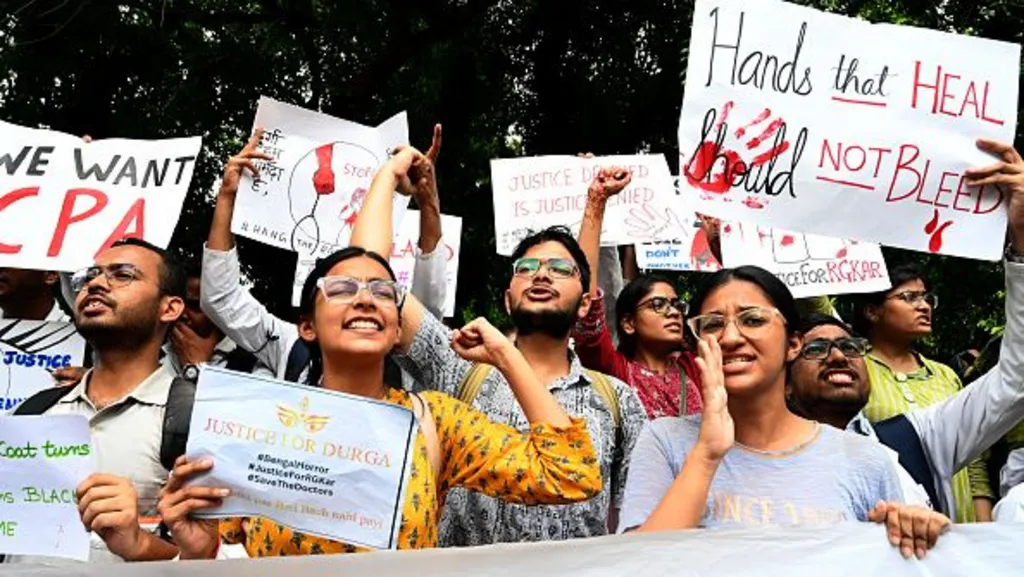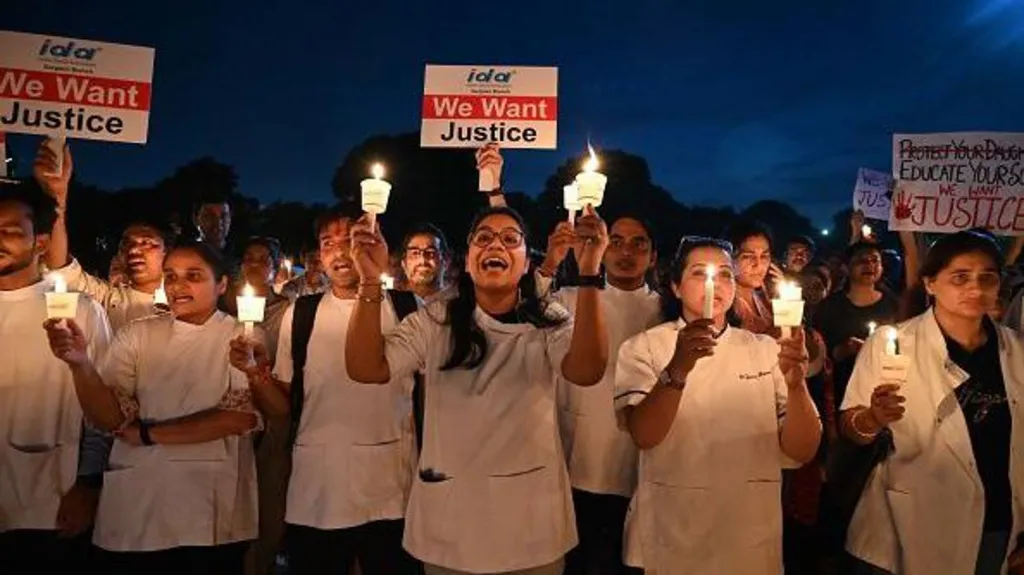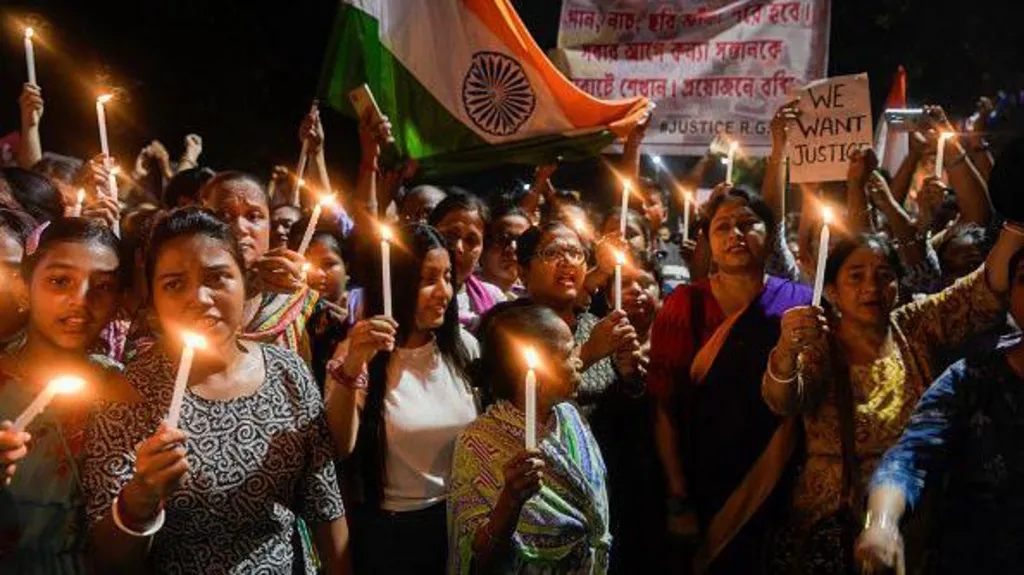
“She wanted to live a good life” Parents of the Indian trainee doctor raped and murdered in Kolkata city sparked massive outrage, with tens of thousands of people protesting on the streets demanding justice.
[Warning: This case maybe disturbing for the reader, proceed with caution. All names and details of the family have been removed as Indian laws prohibit identifying a rape victim or her family.]
“Please make sure dad takes his medicines on time. Don’t worry about me.”
These were the last words that the 31 year old doctor said to her mother, hours before she was brutally assaulted in a hospital where she worked.
At their family home in a little alley, a few kilometers from Kolkata, the mother told the BBC, “The next day, we tried reaching her but the phone kept ringing.”
The doctor’s body was found in the lecture hall that same morning, partially clothed and covered in injuries. A volunteer at the hospital has been taken into custody in relation to the offense.
Nationwide indignation over the tragedy has resulted in rallies in a number of major cities. The Indian Medical Association (IMA) called for a nationwide strike by doctors across all hospitals in India over the weekend, with only emergency services offered at larger institutions.
The family say they feel hollowed out by their loss.

Her father remarked, “At sixty-two, all my dreams have been shattered.”
Their home, which is in a reputable neighborhood, has been under severe public investigation since their daughter’s horrifying murder.
Dozens of journalists and camera crew are positioned behind a police cordon in the hopes of capturing the parents should they decide to leave.
Ten to fifteen police officers are always on watch to make sure the victim’s home is not photographed by the cameras.
The woman, a junior physician at the city’s RG Kar Medical College, went to a lecture room on the evening of August 9 to unwind after a demanding 36-hour shift.
Her parents recalled how the young physician, who was their only child, was an enthusiastic learner who put in a great deal of effort to become a doctor.
Our background is lower middle class, and we accomplished everything on our own. We had financial difficulties when she was a child, the tailor’s father stated.
Sewing machine, spools of thread, heavy iron, and other equipment of his trade littered the living room where he sat.
Fabric remnants were strewn all over the floor.
He went on, “There were times when the family did not even have enough money to buy pomegranates, which is their daughter’s favorite fruit.”
“But she could never bring herself to ask for anything for herself.”
“You can’t make your daughter a doctor,” others would say. “But my daughter disproved everyone and was accepted into a government-run medical school,” he sobbed as he continued. A cousin attempted to comfort him.
Every night before going to bed, the mother remembered how her daughter would write in her diary.
In her letter, she expressed her desire to receive a gold medal for her medical degree. She continued softly, “She wanted to have a wonderful life and take care of us too.”
And she did.
The father, who suffers from hypertension, stated that his daughter made sure he took his medications on schedule every single time.
I once ran out of medication and decided to buy more the following day. However, she found out, and she declared that nobody would eat until the medication arrived, even though it was only around 10 or 11 p.m., he added.
“That was just the way she was; she never gave me any reason to worry.”
Her mother listened carefully, her hands going back and forth across a gold bracelet she had purchased with her daughter.
The parents announced that the marriage of their daughter was almost complete.
“But she would tell us not to worry and say she would continue to take care of all our expenses even after marriage,” recalled the father.
The mother started crying as he said those words, her gentle cries resonating in the background.
Her gaze would occasionally stray to the stairs that led to their daughter’s chamber.
Since learning of her passing on August 10, the door has stayed closed, and her parents have not been inside.
They claim they are still in shock that their daughter could experience something “so barbaric” at her place of employment.
The father declared, “The hospital should be a safe place.“
India has a serious problem with violence against women; in 2022, there were 90 recorded rapes a day on average, according to government statistics.
The parents claimed that their daughter’s passing had reminded them of a 2012 incident in which a 22-year-old intern in physical therapy was sexually assaulted by a gang on a moving bus in Delhi, the capital. Her wounds proved to be lethal.
Following the assault, India strengthened its laws against sexual violence, sparking weeks of rallies that made headlines throughout the world.
However, the number of recorded sexual assault cases has increased, and women still face barriers to accessing the legal system.
Thousands of people joined Kolkata’s Reclaim the Night march last week to call for national safety for women.
The doctor’s case has also drawn attention to the difficulties encountered by healthcare professionals, who have called for a federal statute to safeguard them—especially women—at work and a comprehensive and unbiased investigation into the murder.
JP Nadda, the federal minister of health, has given doctors his word that stringent steps will be implemented to improve workplace safety.
Nevertheless, it’s too little, too late for the doctor’s parents.
The father declared, “We want the culprit to face the worst punishment possible.”
“Justice for our daughter is something that our state, our nation, and the entire world are demanding.”
